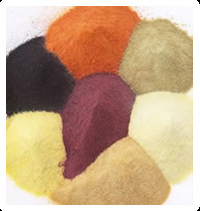Dill Purchase & Information

Alternative Names
Aneth, American Dill, Anethi Fructus, Aneth Odorant, Anethi Herba, Dillweed, Dill Oil, Dilly, Dill Weed and Dill Herb, European Dill, Eneldo, Fenouil Bâtard, Faux Anis, Fenouil Puant, Huile d'Aneth, Indian Dill, Madhura, Shatpushpa, Satahva, Sowa, Sotapa
Scientific Name
Anethum Graveolens
Why Do People Use Dill?
Orally - The oral preparations of Anethum graveolens (Dill) are used for a number of reasons that include treatment for the loss of appetite, gastrointestinal disorders, flatulence, kidney disease, cough, fever and colds issues, infectious diseases, bronchitis, gallbladder and liver complaints, sleep disorders, for insomnia, hemorrhoids treatment, urinary tract disorders, neuropathy, spasms, dysuria, renal colic, dysmenorrhea and genital ulcers.
Topically - Topically, preparations of Anethum graveolens are used for the treatment of mouth and throat infections.
Food Items - In foods items, dill powder is used as a culinary spice.
Manufacturing - Dill oil is sometimes used as a fragrance ingredients in perfumes, soaps and cosmetics.
Is It Safe To Use?
Possibly Safe - Oral consumption of dill is possibly safe as long as it is used in amounts found in various food items. This herb has attained rank of Generally Recognized as Safe Status (GRAS) in the United States. Anethum graveolens may be safe to use when used orally and appropriately in amounts present in medicines.
Likely Unsafe for Pregnant Females - Dill powder is considered unsafe to use for pregnant females when utilized in medicinal amount. Seeds of dill are utilized for stimulating the flow of menstrual blood. Dill seeds seem to adversely affect pregnancy.
Lactation - Dill should be avoided in lactation because there is lack of authentic information to rate the safety of dill for lactation.
How Effective Is Dill?
The information available to rate the effectiveness of dill powder is still inadequate and requires more research.
How Dill Works?
Most effective parts of Anethum graveolens are above ground parts and its seeds. Seeds of dill contain volatile oil rich in carvone. There is rich amount of vital ingredients in dill leaf that include potassium, iron and beta-carotene. Dill may be responsible for some effects that include sedation, antibacterial and diuretic effects. Furthermore, dill powder may improve the process of lactation. However, it is a known urinary irritant as well. Dill extract, when given intravenously, lowers blood pressure, stimulates respiration, dilates blood vessels and also slow down heart rate in animals.
Oil of dill seed has spasmolytic impacts on smooth muscle.
What Are The Side Effects /Adverse Reactions of Dill?
One of the topical side effects of Anethum graveolens is photodermatosis, which may surface due to using freshly harvested plants juices. Dill could also come up with adverse effect like contact dermatitis disorders.
How Dill Interacts With Other Herbs and Supplements?
There is no known interaction between dill powder and different supplements & herbs.
How Dill Interacts With Drugs?
Lithium - Interaction rating between lithium and dill roots is moderate so be careful of this combination. Dill powder may have diuretic impacts. Because of these diuretic impacts, dill powder may enhance the lithium levels due to reduced excretion. To reduce these after effects, lithium dosage should be decreased.
How Dill Interacts With Foods?
No food item has yet shown interaction with dill powder.
How Dill Interacts With Lab Tests?
There is no known interaction between Anethum graveolens and lab tests.
How Dill Interacts With Diseases and Conditions?
Cross Allergenicity - Consuming aerial parts of dill could result in allergic side effects in those individuals who are allergic to carrot family plants. Few of them include caraway, fennel, asafoetida, coriander and celery.
What Should Be the Dose/Administration of Dill?
ORAL
• There is no typical oral dosage of dill root.
• But typically dried seeds of dill are utilized in a dose of 1 to 4 grams thrice every day.
• Tincture solution of dill should be utilized up to three times every day.
• Dill oil is used daily in a dose of 100-300 mg, which is approximately 2-6 drops.
Comments
In past people have utilized dill as a charm for enchantments and witchcraft.
General Certificate of Analysis (COA)
Specification sheet links below are a standard copy of the COA less the batch or lot number and manufactures dates. Specification sheet can be dated and should only be considered as a general information. Please contact and request an up to date COA if needed for specific updated information before placing order by filling out the contact form with product name and SKU number. If ordering quantities of twenty five kilos or more contact for availability.
